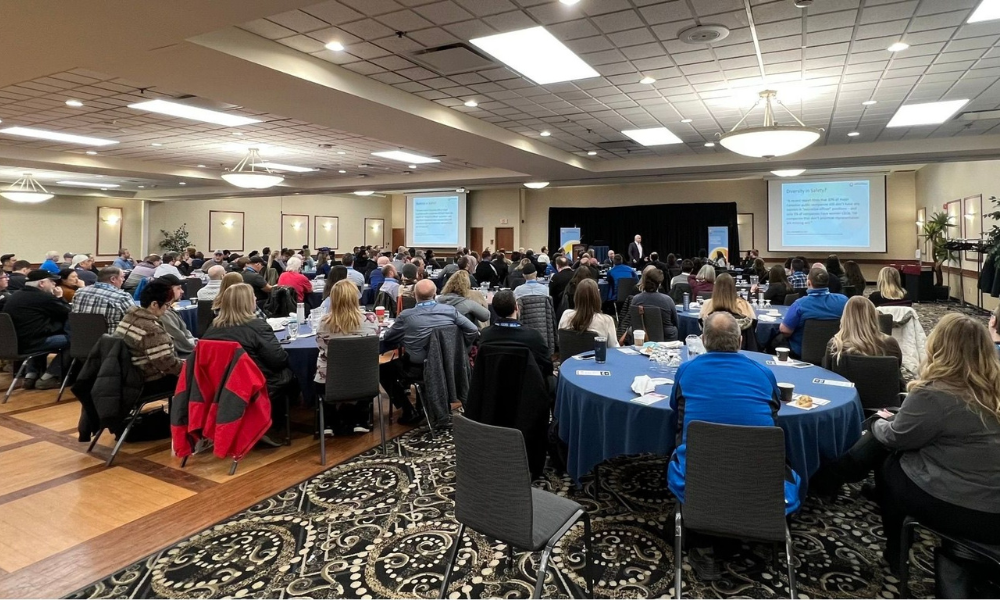Expert feeling 'rejuvenated' after hearing from peers on key issues

As safety leaders in Manitoba gathered for three days of presentations, group discussions, and a general sharing of knowledge and services, one theme seems to have emerged as the dominant takeaway. The role of mental health in a workplace safety culture needs to be prioritized from the top down.
“Mental health was a huge topic,” says Kent Blackmon, manager of organizational safety services with the City of Winnipeg. He has also served on the organizing committee for the annual Safety Services Manitoba Occupational Health and Safety Conference which was held in-person last month for the first time since the on-set of the global COVID-19 pandemic.
Blackmon says prioritization of mental health was a thread that ran through the entire event, which may not be surprising given a recent study from the Canadian Institute for Health Information which shows rising demand for mental health treatments has created weeks-long backlogs to access those services.
The face-to-face interactions between people who talk about hazards, including mental health, all the time created a sense “that we are getting back together as a community,” says Jamie Hall, vice president of SAFE Work Manitoba. He says “leadership and culture would be the overall theme” from the event.
Instilling a culture of support for workers struggling with anxiety, depression, stress, and a whole host of other mental health issues might not be easy for a lot of organizations, which is why Hall says that kind of leadership needs to come from the top. “The most successful companies are the ones that look after their people.”
Leadership goes far beyond any single business, company, or group and is required at the community level as well. That’s why the decision from Safety Services Manitoba to bring the conference back to an in-person format shows brave leadership among a broad group of people, who are safety-oriented, and just faced one of the most difficult safety challenges of their careers.
The psychological effects of the pandemic will be long-lasting, but for a safety professional like Blackmon, gatherings like these provide an opportunity to fill his bucket. “Part of why I go to these conferences is to be uplifted,” explains Blackmon, who says talking about difficult subjects, and getting tools and resources to tackle those challenges helps him recharge and refocus.
“You're walking away and you're kind of rejuvenated…you're given that additional energy that you need to kind of go and be that change maker in your organization.”
Many businesses need those safety disruptors operating at full capacity. Not every company has a leader willing to embrace a safety culture that prioritizes mental health. Hall says it’s up to the safety professionals to try and bring those stubborn leaders on-board.
“The conference can equip those safety practitioners, the workplace, even health committee members, to go back to their leaders and say, I'm going build a business case for you that's going to incorporate not only our legal requirements, but your moral responsibilities,” says Hall.
Safety Services Manitoba accomplished that with its 2023 Occupational Health and Safety Conference.





